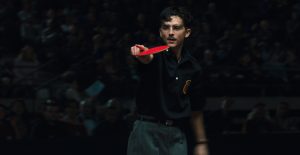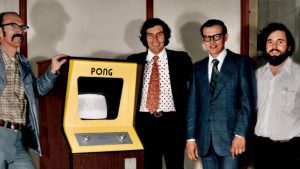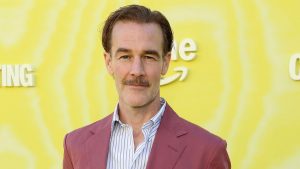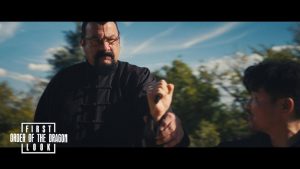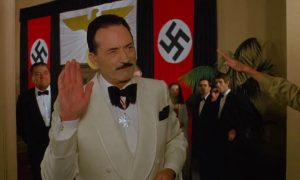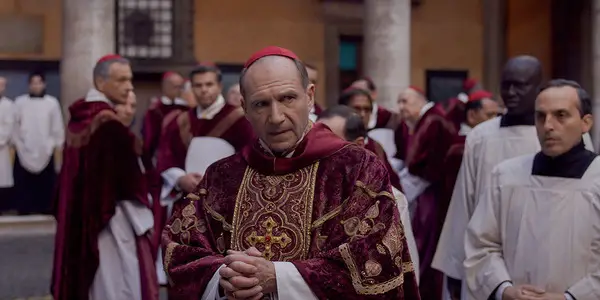
Following the success of All Quiet on the Western Front at the Oscars, all eyes are on Edward Berger‘s Conclave, which made its international debut at TIFF. Featuring a stunning performance by Ralph Fiennes, Berger spoke to Film Inquiry about what attracted him to this unique story, and what his expectations are from an awards standpoint.
Wilson Kwong of Film Inquiry: Going through the press notes, I know you’ve mentioned that the character of Cardinal Lawrence was what attracted you to this story. Can you elaborate on why this character was so interesting to you?
Edward Berger: Well, first of all, I was attracted by the political game of chess that was played. I thought it gave me the opportunity to create a modern political thriller, like a conspiracy thriller from the seventies, like All the President’s Men or The Parallax View. I love those movies. And I thought this is my opportunity to put that kind of feeling, the paranoid thriller, into a political thriller. And then secondly, I always look for a second layer in a movie. I don’t just want to have a plot of who’s going to become Pope. That isn’t ultimately interesting if you don’t have an inner journey for your hero. And I loved Ralph Fiennes‘ character that finds himself in a moment of crisis, that questions what he’s doing, why he’s doing it. And he just questions himself and throughout the movie kind of finds his feet and finds his inner core. In the end, he liberates himself from this crisis and the question of these doubts. And that is something I can very much identify with. And I think that Ralph can very much identify with. It’s the main reason why both of us made the movie.
As far as what’s happening internally with Ralph Fiennes’ character (Lawrence), a lot of that isn’t really stated in the film itself. What kinds of conversations did you have with Ralph in terms of defining what might be transpiring internally from a character standpoint?
Edward Berger: Well, I think his character is fairly silent. He observes a lot, he thinks a lot. So I needed an actor who can express with his eyes or behind his eyes what he’s thinking. And I think Ralph is very much that character in terms of what he’s thinking exactly. I think it’s open to interpretation, but I think everyone’s going to identify it with differently and have their own questions. I think everyone in the audience, I think most people doubt themselves at some point or another. No one is a hundred percent certain, and actually Ralph’s [character] says, “certainty is the enemy of things.” Certainty is the enemy of anything that keeps us thinking. And I think that’s the main arc, he’s thinking, am I the right person for this job? Am I the right person to be a cardinal? Should I have been something else? It’s a real existential crisis that he’s going through. Did I really make the right when I was 20 to say I’m going to renounce everything? And by the end of the movie, he’s found his inner core, his center again, and is at peace with himself and thinks I can stay here. I don’t have to move away.
When it came to constructing the film itself, one thing that was really striking was how despite its finite setting, it doesn’t feel claustrophobic or restricted at all. I was wondering if you could just talk about how you developed the spacing of the film, and ensuring that it was so expansive as a story.
Edward Berger: I always liked when the movie curtain opens and takes us into a place that we don’t know much about, and that looks expansive. This is a movie that takes us to the theater, so I think it needs to be a performance. It needs to be to open up something inside. So I love scouting locations. I love scouting places that look different, that look big. I love big spaces, and I love putting people [in them]. We have a scene where seven Cardinals sit in a big auditorium of a thousand theater seats, having a discussion that mirrors the inner state of the characters I’m interested in. So I love putting the actors in spaces that says something about the state they’re in.
Conclave (2024) – source: Toronto International Film Festival
The music also seems to play a role in how expansive the film feels. Can you talk about how you developed the score with Volker Bertelmann?
Edward Berger: In this case, it came slowly. With All Quiet on the Western Front, he just did it, and I said, let’s use it. This time, I said to Volker, break the images, go against them. Let’s find something that doesn’t actually fit in this place and somehow create a tension between music and image that ideally creates something new; creates a thrilling element, creates something, lifts it and elevates it to something bigger. And tonally, music is such an important element to create a tone for a movie. Even if you have no music, it creates a tone. And to me, music is the element that, along with the images, creates the tone [of a film]. You can really change the way a movie lands, and in this case, I wanted to land an inner turmoil that slowly clarifies or pacifies itself.
Just to end off, because we’re at a fall film festival right now, how does premiering this film in light of all the awards (and Oscars) success of All Quiet on the Western Front change your expectations?
I mean, you can never expect anything. Every time you show a movie, you’re terrified of the audience, and how the audience is going to react. It’s a tiny group of people that sees the movie when it’s finished, and maybe 20 people from Focus and Elevation sees it. And you can only hope that the audience is going to embrace it. And that’s a really big moment today. For the first time, you suddenly have 1,700 people watching it and suddenly it’s not your movie anymore. It’s the public’s movie. It’s the audience’s movie and how that is perceived and how that is carried on, you have no influence over. You just have to let it go and just hope that it lands somewhere that resonates with people. And whether it goes on to awards or not, you can never know. And it doesn’t really matter, just make the next movie.
Does content like this matter to you?
Become a Member and support film journalism. Unlock access to all of Film Inquiry`s great articles. Join a community of like-minded readers who are passionate about cinema – get access to our private members Network, give back to independent filmmakers, and more.




